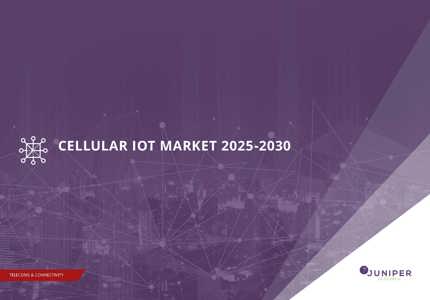What the Arrival of VodafoneThree Means for UK Telecoms
Vodafone UK and Three UK have officially merged, forming a new joint venture: VodafoneThree. The new entity is 51% owned by Vodafone and 49% by CK Hutchison Group Telecom Holdings, and will be fully consolidated into Vodafone’s financial reporting. This marks a key milestone in Vodafone’s ongoing European restructuring; and adds another chapter to a market already shaped by three major mergers over the past 15 years.
What Does This Mean for UK Telecoms?
The launch of VodafoneThree introduces a fresh challenge to the long-standing dominance of EE/BT and Virgin Media O2. But the timing is critical; like many developed markets, the UK is facing growing pressure to accelerate digitalisation against a backdrop of economic uncertainty.
Although commercial 5G has been available since 2019, operators have yet to unlock its full revenue potential, making it harder to sustain profitability. This has placed renewed focus on operational efficiency and cost control.
Historical revenue data (taken from our latest research on the subject) is included below, showing a gradual upward trend. However, despite this growth, operators remain heavily focused on reducing the total cost of ownership (TCO) across their networks. Vodafone expects the merger to deliver significant savings, forecasting annual cost reductions of £700 million within five years.
Total Operator-billed Revenue in the UK ($m), 2018-2024

Source: Juniper Research
Juniper Research has identified three key areas where VodafoneThree is likely to achieve cost savings:
- Network Operational Expenditure (OPEX) through Integration: The most significant savings will come from integrating networks—sharing spectrum and base stations will substantially lower ongoing operational costs.
- Network Expansion Costs through Economies of Scale: Combining resources will make it more cost-effective to expand coverage and capacity, reducing capital requirements for future growth.
- Back-Office Efficiencies: Consolidating infrastructure and digital systems will cut costs across support functions and shared services.
Navigating Strategic Differences Post-Merger
Both Vodafone UK and Three UK have long prioritised 5G deployment, and VodafoneThree has reinforced this with a major investment pledge: £11 billion ($14.8 billion) to expand its network footprint, including £1.3 billion ($1.7 billion) earmarked for 2025 alone.
However, despite this shared focus, the two operators entered the merger with notably different market strategies. Vodafone has a broader portfolio and a strong presence in the B2B space, while Three UK has built its brand around competitively priced consumer services. This raises important questions about what the merger means for subscribers.
Juniper Research expects Vodafone’s strategy to lead the direction of the new entity, given its larger size and majority ownership. That said, the competitive pricing that defined Three UK’s consumer offering is likely to remain in place, at least in the near term.
Looking more broadly, the B2B segment cannot be overlooked; it remains one of the fastest-growing revenue streams in telecoms. As such, we anticipate a balanced strategy from VodafoneThree, addressing both consumer and enterprise markets over the next three years.
Vodafone’s recent moves underline this strategic pivot. In addition to its AI and financial services partnership with Microsoft, the company has spun off its IoT division into a standalone business focused on enterprise growth. This development is particularly relevant to the merger, as it signals Vodafone’s long-term ambition in the B2B space; an area where Three UK has had minimal involvement to date.
Vodafone IoT Repositioning as a Connectivity Platform
Vodafone UK’s decision to spin off its IoT business while merging with Three UK highlights a deliberate move to treat the consumer and enterprise segments as distinct priorities. This approach reflects the very different dynamics, demands, and revenue models that define each market.
The consumer mobile market - the primary focus of the merger - is driven by scale, competitive pricing, and brand visibility. It’s a high-volume, low-margin space where success hinges on customer acquisition, retention, and network reliability. Juniper Research views customer experience as one of the most critical factors influencing UK subscriber decisions when choosing a mobile operator.
Yet the rollout of 5G has underscored just how difficult it is to monetise consumer networks. Despite significant investment, operators have struggled to deliver new services that generate meaningful additional revenue from the consumer segment. This has placed growing importance on the enterprise market, where the opportunity to monetise cellular connectivity in new ways is much greater; though it also presents a very different set of challenges.
Unlike the consumer sector, the IoT and enterprise space involves complex, often bespoke deployments; longer sales cycles; higher acquisition costs; and ongoing service and support requirements. By spinning out its IoT business, Vodafone can develop focused strategies tailored to enterprise clients across key sectors such as manufacturing, logistics, healthcare, and smart cities; free from the constraints of the consumer market model.
As VP of Telecoms Market Research at Juniper Research, Sam produces high-quality research on telecommunications technologies and the future of digital content. His recent reports include CPaaS, Direct-to-Cell, and Future Leaders 100: Telco. Sam has been interviewed by leading media outlets, including the BBC and Wall Street Journal, and is a regular contributor to messaging conferences and telecommunications industry events.
Latest research, whitepapers & press releases
-
 ReportMarch 2026Fintech & PaymentsCross-border Payments Market: 2026-2030
ReportMarch 2026Fintech & PaymentsCross-border Payments Market: 2026-2030Our Cross-border Payments research suite provides a comprehensive and in-depth analysis of the evolving cross-border payments landscape; enabling stakeholders such as businesses, financial institutions, payment service providers, card networks, regulators, and technology infrastructure providers to understand future growth, key trends, and the competitive environment.
VIEW -
 ReportFebruary 2026Telecoms & ConnectivityMobile Messaging Market: 2026-2030
ReportFebruary 2026Telecoms & ConnectivityMobile Messaging Market: 2026-2030Juniper Research’s Mobile Messaging research suite provides mobile messaging vendors, mobile network operators, and enterprises with intelligence on how to capitalise on changing market dynamics within the mobile messaging market.
VIEW -
 ReportFebruary 2026Fintech & PaymentsKYC/KYB Systems Market: 2026-2030
ReportFebruary 2026Fintech & PaymentsKYC/KYB Systems Market: 2026-2030Our KYC/KYB Systems research suite provides a detailed and insightful analysis of an evolving market; enabling stakeholders such as financial institutions, eCommerce platforms, regulatory agencies and technology vendors to understand future growth, key trends and the competitive environment.
VIEW -
 ReportFebruary 2026Telecoms & ConnectivityRCS for Business Market: 2026-2030
ReportFebruary 2026Telecoms & ConnectivityRCS for Business Market: 2026-2030Our comprehensive RCS for Business research suite provides an in‑depth evaluation of a market poised for rapid expansion over the next five years. It equips stakeholders with clear insight into the most significant opportunities emerging over the next two years.
VIEW -
 ReportFebruary 2026Fintech & PaymentsMobile Money in Emerging Markets: 2026-2030
ReportFebruary 2026Fintech & PaymentsMobile Money in Emerging Markets: 2026-2030Our Mobile Money in Emerging Markets research report provides detailed evaluation and analysis of the ways in which the mobile financial services space is evolving and developing.
VIEW -
 ReportJanuary 2026IoT & Emerging TechnologyPost-quantum Cryptography Market: 2026-2035
ReportJanuary 2026IoT & Emerging TechnologyPost-quantum Cryptography Market: 2026-2035Juniper Research’s Post-quantum Cryptography (PQC) research suite provides a comprehensive and insightful analysis of this market; enabling stakeholders, including PQC-enabled platform providers, specialists, cybersecurity consultancies, and many others, to understand future growth, key trends, and the competitive environment.
VIEW
-
 WhitepaperMarch 2026Telecoms & Connectivity
WhitepaperMarch 2026Telecoms & ConnectivityMWC 2026: What's Next for Mobile?
Our latest whitepaper distils the most important announcements from MWC Barcelona 2026 and examines what they mean for the telecoms market over the year ahead. From network APIs and 5G monetisation to AI-RAN, direct-to-cell connectivity, and 5G-Advanced, it explains where the biggest opportunities — and challenges — will emerge next.
VIEW -
 WhitepaperMarch 2026Fintech & Payments
WhitepaperMarch 2026Fintech & PaymentsThe Transformation of Cross-border Payment Infrastructure
Our complimentary whitepaper, The Transformation of Cross-border Payment Infrastructure, examines the state of the cross-border payments market; explaining the role of key actors in transforming the cross-border payment experience, as well as the current landscape and recent developments within the cross-border payments industry.
VIEW -
 WhitepaperFebruary 2026Telecoms & Connectivity
WhitepaperFebruary 2026Telecoms & ConnectivityHow Social Media Will Disrupt Mobile Messaging Channels in 2026
Our complimentary whitepaper, How Social Media Will Disrupt Mobile Messaging Channels in 2026, explores the challenges and opportunities for operators and enterprises as social media traffic continues to increase.
VIEW -
 WhitepaperFebruary 2026Telecoms & Connectivity
WhitepaperFebruary 2026Telecoms & ConnectivityProtecting Users from Scam Ads: A Call for Social Media Platform Accountability
In this new whitepaper commissioned by Revolut, Juniper Research examines how scam advertising has become embedded across major social media platforms, quantifies the scale of user exposure and financial harm, and explains why current detection and enforcement measures are failing to keep pace.
VIEW -
 WhitepaperFebruary 2026Fintech & Payments
WhitepaperFebruary 2026Fintech & PaymentsKnow Your Agents (KYA): The Next Frontier in KYC/KYB Systems
Our complimentary whitepaper, Know Your Agents (KYA): The Next Frontier in KYC/KYB Systems, examines the state of the KYC/KYB systems market; considering the impact of regulatory development, emerging risk factors such as identity enabled fraud, and how identity and business verification is evolving beyond traditional customer and merchant onboarding toward agent-level governance.
VIEW -
 WhitepaperFebruary 2026Telecoms & Connectivity
WhitepaperFebruary 2026Telecoms & Connectivity3 Key Strategies for Capitalising on RCS Growth in 2026
Our complimentary whitepaper, 3 Key Strategies for Capitalising on RCS Growth in 2026, explores key trends shaping the RCS for Business market and outlines how mobile operators and platforms can accelerate adoption and maximise revenue over the next 12 months.
VIEW
-
Fintech & Payments
Top Three Global Leaders in Cross-border Payment Infrastructure Revealed
March 2026 -
Telecoms & Connectivity
MVNO Subscriber Revenue to Exceed $50 Billion Globally in 2030
March 2026 -
Fintech & Payments
QUBE Events is excited to bring back the 24th NextGen Payments & RegTech Forum - Switzerland
February 2026 -
Telecoms & Connectivity
OTT Messaging Apps to Exceed 5 Billion Users Globally by 2028; Driving Shift in Enterprise Communication Strategies
February 2026 -
Fintech & Payments
Calling All Fintech & Payment Innovators: Future Digital Awards Now Open for 2026
February 2026 -
Telecoms & Connectivity
Operator RCS for Business Revenue to Reach $3 Billion Globally by 2027, Growing 150% in Two Years
February 2026

























